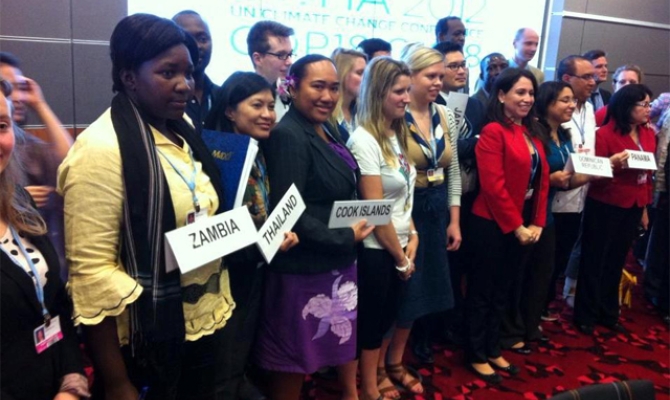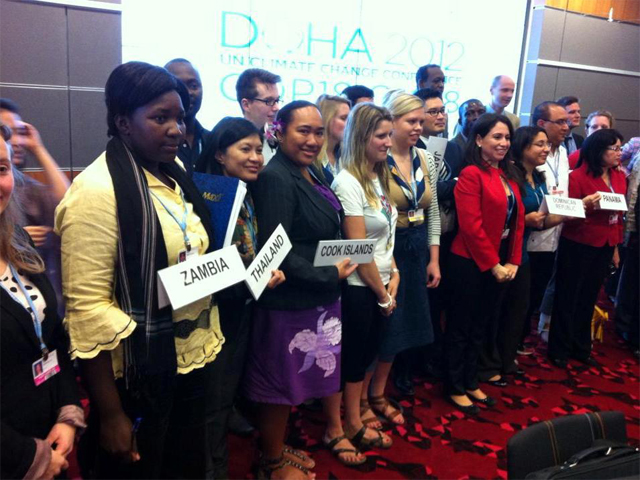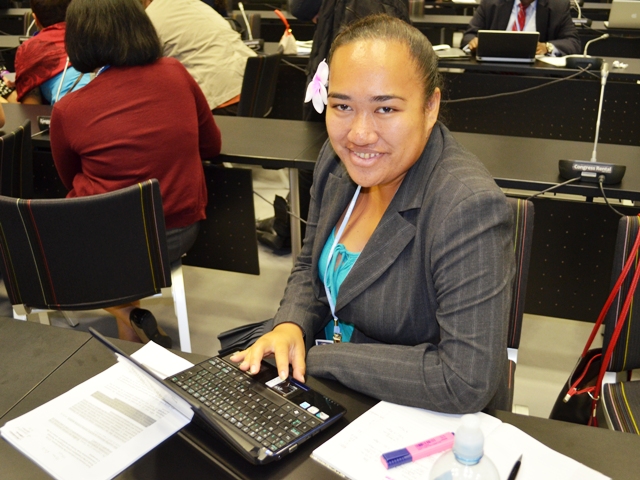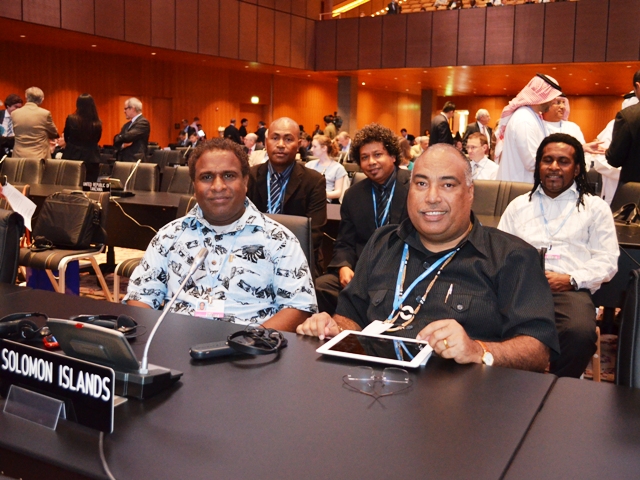
4 December 2012, Doha, Qatar - By the end of the first week of UN Climate change negotiations, the agenda on Article 6 – training, education and public awareness, had reached a decision to be adopted.
 Country delegates celebrating Article 6 achievement
Country delegates celebrating Article 6 achievement
Photo: © D. McFadzien
The Doha Work Programme on Article 6 of the United Nations Convention Framework on Climate Change, an 8 year plan on how to approach awareness of climate change will be presented to the parties to the convention next week for adoption.
This was a moment to celebrate in these negotiations, where reaching an agreed position is not always easy.
 Mii Matamaki of the Cook Islands
Mii Matamaki of the Cook Islands
"We are really happy that we have reached a consensus so quickly, it shows the true spirit of cooperation and compromise in this process," said Mii Matamaki of the Cook Islands National Environment Service, she was following this arm of negotiations.
"Article 6 is important to us in the Cook Islands as we do a lot of awareness work with our communities on climate change. We really wanted to follow this through to lobby for more funds so there is no burden on our national budget in carrying out Article 6 of the convention."
In the Solomon Islands, Article 6 features a vital role to ensure that local communities know what climate change is about and how it will impact them.
"It's important for the Solomon Islands government and our communities to ensure that the work we do on climate change awareness and understanding reaches those that are really affected by it," said Chanel Iroi of the Solomon Islands.
There are six thematic areas in the Doha Programme of work under Article 6, these are; Education; Training; Public awareness; Public access to information; Public participation and; International cooperation.
The New Delhi Programme of work that guided all Education, public awareness and training ended this year. It was reviewed and gaps that were identified were included in the Doha programme of work to be adopted by the parties and implemented as of next year.
The Solomon Islands are coming to the end of a climate change awareness raising activity with a twist. The Ministry of Climate Change, Disaster Management and Meteorology have staged a band competition calling for bands to submit lyrics for songs. The Ministry then conducts a climate change session with them to help the bands understand more about the issue, based on that the bands have reworked their lyrics.
20 of the bands were selected to compete in the competition which will have first, second and third place winners. A music video will also be compiled on the bands and their entries.
 Chanel Iroi on left, with the Solomon Islands delegation
Chanel Iroi on left, with the Solomon Islands delegation
"This is really exciting and it has helped us target a young audience which was the aim behind this band competition. We were really surprised as we got so many entries for this. While a younger audience was our target for this competition, we also conduct activities and work closely with our stakeholders and NGO community," said Iroi.
The Cook Islands have conducted a number of different climate change awareness activities. The 'Climate Change in the Pacific' booklet produced by WWF South Pacific was translated into Cook Islands Maori using local examples and actions. Presentations on climate change were made with primary and secondary schools, Cook Islands Christian Church council meetings and the theological college.
The Cook Islands National Environment Service supported the Pacific Year of Climate Change in 2009 also. According to Mii Matamaki, the new Doha Programme of Work highlights exciting opportunities.
"We launched our second national communication this year, it's an overall report to the UNFCCC on all climate change work that we have done. It is one of the obligations for the Cook Islands as a party member, in this report we have also listed and discussed all work the Cook Islands conducted under Article 6. We look forward to strengthening this with the Doha Programme of Work."